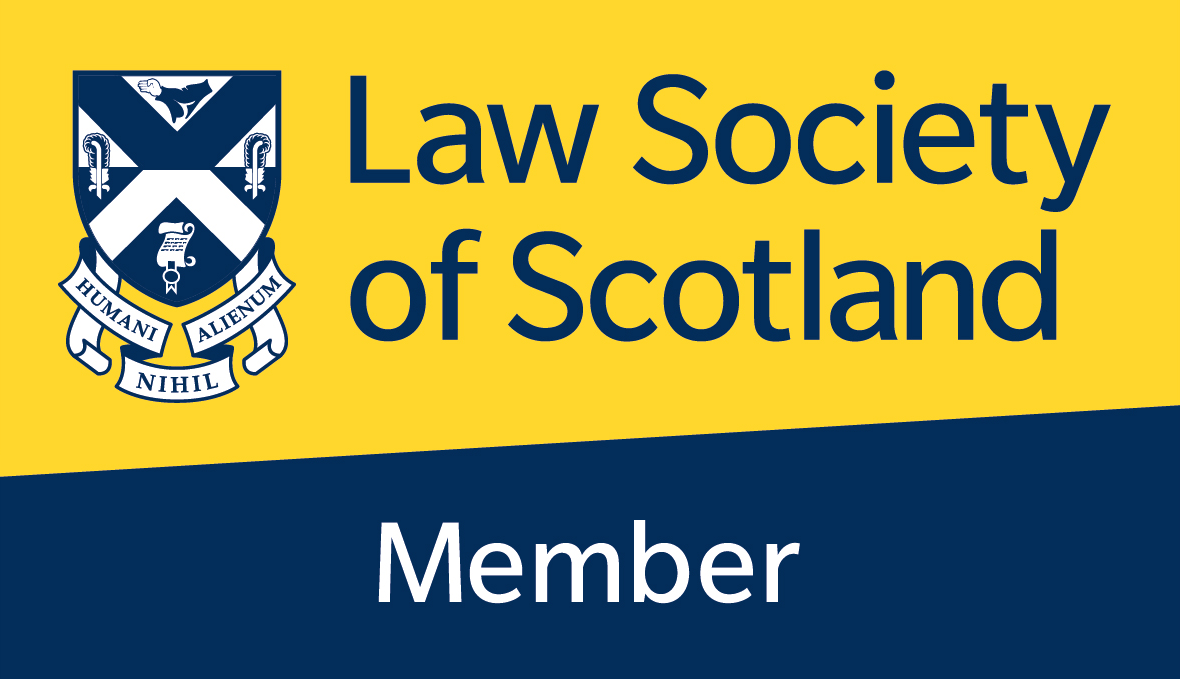Lawford Kidd, Personal Injury Solicitors
Review of Expenses and Funding of Civil Litigation in Scotland (The Taylor Review): Response by Lawford Kidd
Review of Expenses and Funding of Civil Litigation in Scotland (The Taylor Review): Response by Lawford Kidd Personal Injury Solicitors to the Consultation paper
Thursday 15th March 2012
Lawford Kidd is a Specialist Personal Injury Practice. The firm welcomes the Review of Expenses and Funding.
Lord Gill’s consultation paper raised serious concerns regarding the availability of funding for claimants, particularly in relation to personal injury actions. Lord Gill made it clear that the proposals by Lord Justice Jackson in England raised fundamental issues which should be addressed by the Working Group on Judicial Expenses.
In view of the problems identified by Lord Gill relating to funding and its impact on Access to Justice Lord Gill made it clear that an urgent review was needed of the current cost regime.
In his recommendations (vol. 1 page 270, para190) Lord Gill states “the outcome of Lord Justice Jackson’s review and whether, in the light of his recommendations, the rule that expenses follow success may require to be modified in this jurisdiction, are matters that should urgently be addressed by the Working Group on Judicial Expenses”.
The firm welcomes the introductory remarks of the Review of Expenses where it is stated that the Civil Justice System “should be accessible to all and sensitive to the needs of those who use it”.
This response focuses principally on the question of costs in relation to personal injury litigation. The submissions are based on the acknowledged problems with the funding of personal injury litigation in Scotland identified by Lord Gill and confirmed in the review paper. It is clear that in Scotland at present there are significant problems in providing Access to Justice for personal injury claimants.
1. Legal Aid funding is of minimal significance in personal injury litigation. The total number of grants of Civil Legal Aid in the Court of Session in 2011 amounted to 59, including clinical negligence. The annual case load of personal injury actions in that forum was around 3,000.
2. There is no adequate regime for providing after the event insurance nor are the premiums recoverable. This paper attaches a scheme of ATE insurance provided by Templeton Insurance indicating the type of standard provision available in England with the cost of premiums which can be substantial. Such policies work in England because they are recoverable. In Scotland they would require substantial deductions from the claimants damages. Lord Gill’s survey of Scottish Solicitors identified the fundamental issue regarding ATE insurance: Chapter 14 para 109: “some respondents noted that it was difficult and sometimes impossible for solicitors to obtain ATE cover for their clients in Scotland. Some reported that it was available, but more expensive than in England and Wales. This was partly because the market was too small and partly because premiums were not recoverable, which in turn impacts on the size of the market.. there was broad agreement that the ATE market was unlikely to develop in Scotland unless premiums were recoverable”. In relation to Scottish Speculative Agreements it is clear again from Lord Gill’s Review that there is a significant issue relating to Access to Justice; this is discussed on pages 98 and 99 and para 107 “as far as Access to Justice is concerned, speculative fee arrangements were said to have been responsible for a reduction in the number of firms taking on personal injury litigation, resulting in less choice for consumers but a concentration of expertise in those firms dealing with such cases…Another respondent was of the view that speculative fee arrangements were being entered into where there was little risk”.
In relation to trade union funding of cases the inadequacy of the Scottish regime is highlighted in chapter 14 of the Scottish Courts Review at para 97 “it is understood that some trade unions have special arrangements that do not fit the normal model for speculative fee agreements, in that success fees are not charged where the claim is successful and neither the defenders nor the pursuer’s legal costs are charged to the pursuer if he is unsuccessful, these being met either by the union itself or the solicitors”.
It clearly cannot be an appropriate means of funding cases that lawyers have to bear the costs of cases for unsuccessful claims. The impact of such a funding method results is to disadvantage clients with a good case since they are in effect cross-subsidising weaker cases. This also encourages the pursuit only of cases where there is little risk (Lord Gill chapter 14 para107).
With this response is enclosed a briefing paper submitted to the Royal Faculty of Procurators in Glasgow on 10th November 2011. That paper highlights the similarity in personal injury law in England and Scotland relating to
a) The substantial law
b) The assessment of damages
c) The fact that most insurance companies are UK based and insurers administrative systems will tend to treat Scottish and English systems, particularly in relation to assessment of damages, in a similar manner. One immediate impact of the introduction of Lord Jackson’s proposals in England would be to increase the general damages by 10%. The lack of similar proposals in Scotland would have an immediate impact on Scottish solatium levels by allowing recover at only 90% of the English level.
The briefing paper referred to above considers Before The Event insurance at length and sets out the inadequacies of current Before The Event insurance policies. The cover is inadequate. The insurers at present are generating enormous revenues by selling on claims through referral fees.
Proposals to introduce Before The Event insurance in Scotland on a nationwide scale by imposing some form of levy on the general population to fund legal costs is both unrealistic and would be considered as a tax to fund lawyers. Suggestions that an increase in allowable court expenses for claimants would somehow make up for the lack of protection against costs awards is unrealistic. Such an increase would also apply to defenders as the potential cost risk would accordingly be increased.
Having outlined the current inadequacies in the system of funding personal injury litigation in Scotland our response to this consultation paper supports the introduction of Lord Jackson’s proposals in relation to one way cost shifting (whether qualified or not) and it is clear that this would have a significant impact on Access to Justice for personal injury claimants in Scotland. This has been sadly lacking. Again turning to Lord Gill at chapter 14 para 99 relating to English personal injury claimants “they were now relatively free from a financial risk and put claimants on a better footing than legally aided claimants on a nil contribution”.
Our answers to the specific questions in the consultant paper follow and we have attached the following additional papers.
1. Templeton Insurance Limited After The Event policy
2. Briefing paper for Seminar at the Royal Faculty of Procurators in Glasgow on Thursday 10th November 2011
3. Response by David Sandison dated 29th February 2012 as member of the Civil Justice Committee of the Law Society to the draft Law Society Submission
4. Article in Law Society Journal on Lord Jackson’s Review (Price of Success)
Response Chapter 2 “Access to Justice”
Question 1
In relation to personal injury litigation the main reason relating to the cost of litigation that discourages potential litigants from court action is that there is a substantial risk that they will be personally liable for insurers’ costs if the claim is unsuccessful. Due to the lack of adequate provision in Scotland for After The Event insurance, Before The Event insurance and the minimal use of legal aid, cases which have potential risk in relation to liability are not pursued. The impact on claimants of the lack of availability of protection against costs is particularly significant in high value cases. In all types of personal injury case, such as road traffic accident, employers liability, public liability and industrial disease cases the high value cases will require more expert evidence of a medical or other nature to establish the level of damages. Furthermore significant costs may be incurred in expert evidence if liability is likely to be challenged. As the potential defenders will also require to incur extensive costs with their own expert reports, it is essential that a means be put in place to allow a potential Scottish litigant to pursue such a case avoiding a personal risk of costs. One way cost shifting will provide an answer to this problem; suggestions that such a system would encourage lawyers to pursue unmeritorious claims is unlikely on the basis that the solicitor will not wish to incur substantial funding costs for outlays where there is a real risk that the case will not succeed.
Response Chapter 3 “The Cost of Litigation”
Question 2
In personal injury cases solicitor’s fees for litigation should be recovered on the basis of the current payable fees.
Question 3
LPAC is an appropriate body to review the level of fees. There should however be an increase in the block fees to ensure that party and party costs bear a higher relation to agent and client costs than at present. There should also be a review of the criteria for granting additional fees.
Questions 4 -11
The sanctioning of Counsel in the Sheriff Court should be allowed at the commencement of a case and provision should be introduced to allow retrospective sanction of the use of Counsel. The test for the court in relation to the allowance of Counsel should be based on the reasonableness of the instruction with reference to tests such as the value of the claim and the nature of the claim i.e. whether it is an industrial disease case or road traffic or employer’s liability case involving a degree of complexity. The current rules for the employment of Counsel should be relaxed as they are interpreted too strictly. There does not appear to be any need for a cap on expert’s fees as these can be challenged at taxation. In the Court of Session sanction should not be required prior to instruction of senior counsel.
Questions 12-14 in relation to commercial actions
The level of fees could be increased on the basis of the value of the action. Party and party expenses should have a higher relationship to agent and client expenses. There is no need for a tariff-based system for assessing the level of recoverability nor is there any need for a different table of fees relating to the experience of the solicitor.
Questions 15 & 16
The ability to request an additional fee is a reasonable procedure and should be retained. The current procedure in relation to the award of an additional fee is adequate except that the current criteria are too narrow. In England it is common practice for substantial uplifts to be given in relation to personal injury cases which are of a specialised nature such as industrial disease cases. A solicitor who builds up an expertise in dealing with a particular type of work should have that reflected in the award of expenses. Additional fees should be granted as a matter of course where there is a substantial award of damages because of the responsibility of the solicitor dealing with that matter.
Question 17
A litigant should be entitled to claim interest on an award of judicial expenses. The award should run from around the date of the Interlocutor granting expenses. In England it is practice that when a case is settled with an award of costs payment is made within several days of the award of costs. The current Scottish position provides no protection for a claimant faced with a defender spending time challenging the level of expenses and thereafter taking the matter to taxation. At present the pursuer may find that in a substantial case he does not reach agreement or have a taxed account for six to twelve months following decree and no interest is running on the expenses. This is not satisfactory. If there was a rule that interest ran from the date of decree or within a fixed time period of the submission of an account of expenses, this would encourage defenders to make an immediate payment to account of expenses and leave any disputed balance to be sorted out later by taxation. The pursuer would at least recover most of his expenses immediately. Interest should also run on outlays (not Counsel’s fees) from the date they are paid.
Chapter 4 “Further enhancing the predictability of the cost of litigation”
Questions 18 &19
The system of one way cost shifting should be introduced in personal injury cases. There should be no fixed expenses regime and the current system of expenses in relation to small claims cases should continue.
Question 20
One way cost shifting should be introduced in Scotland for the reasons set out in the introduction and enclosed papers. There is no requirement for some reassessment as long as interest is payable on expenses as outlined earlier.
Question 21, 22, 23 & 24 - See earlier submission
Chapter 5 “Protective Expenses Orders”
Questions 25 & 26
Protective award costs should be allowed in environmental and all public interest cases.
Chapter 6 “Referral Fees”
Questions 27-31
Referral fees should be allowed in Scotland whether to another solicitor or another non-legal body providing referrals or instructions. The present situation in Scotland is unsatisfactory. In relation to personal injury work it is possible to pay a solicitor in England a referral fee but not a claims company unless the fee can be justified on the basis of work undertaken. This appears to be an artificial distinction. Claims companies are essentially marketing organisations and there does not appear to be any good reason to ban referral fees in Scotland. However, claims companies in Scotland should be regulated as they are in England.
Chapter 7 “Before The Event insurance”
Questions 32-25
BTE insurance is part of the current legal market and does not provide an adequate solution to the present difficulties faced by Scottish litigants in relation to litigation funding. Often the level of insurance provided is inadequate and the access to solicitors restricted to panel lawyers. BTE insurance policy holders should be required to allow the instruction of a lawyer of choice.
Chapter 8 “Speculative Fee Agreements”
Questions 36-41
For reasons submitted earlier in the paper the firm proposes that there should be one way cost shifting in which case there would be no requirement for recoverable ATE insurance premiums. The success fee should be left to agreement between the solicitor and client. There should however be regulation of a cap on success fees taken from the client.
If it is the view of the current review that one way cost shifting should not be introduced then a scheme of recoverable after the event insurance premiums should be allowed. This would not necessarily involve the recovery of success fees but would provide for greater access to justice. The Law Society compensure scheme did provide a forum to allow litigation of actions with protection against costs. The problem was that it wasn’t properly funded and there was no proper monitoring of the scheme.
Chapter 9 “Damages based agreements (‘Contingency Funding’)”
Questions 42-46
Damages based agreements should be allowed in Scotland. It is reasonable to expect successful pursuers to contribute some of their damages towards payment of the legal fees and clearly there will be competition between legal firms as to the level of contribution expected by clients. There should be a cap on the percentage of damages that lawyers are entitled to charge, as also claims management companies. Claims management companies in Scotland should be regulated on a similar basis to England. In fact at present many claims management companies operating in Scotland are UK based and regulate in England.
Chapter 10 “Third Party Funding”
Question 47-49
Third party funding should be available and there should be no requirement to disclose details of that arrangement.
Chapter 11 “Alternative Sources of Funding”
Questions 50-56
In relation to personal injury actions it is unlikely that the government will be able to fund any extension to the current Legal Aid scheme. The restrictions on the availability of Legal Aid for personal injury claims means that the Legal Aid scheme plays a very minor part in funding Scottish litigation. The current costing to the government for Legal Aid in personal injury cases is minimal. If one way cost shifting were introduced there would be no need for CLAF or SLAS options.
Chapter 12 “Scotland’s Litigation Market”
Questions 57-60
Commercial litigation in Scotland could be encouraged by improving the level of recoverability of expenses. Attempts could be made by the government to promote Scottish commercial litigation by promoting knowledge of Scottish commercial litigation procedures, by stressing the level of expertise available in Scotland at a lower cost to England and ensuring that there continues to be an independent bar with access to the relevant commercial expertise. In reality many UK commercial operations will require the use of English law in contractual agreements and that is a commercial decision which is hard to challenge. Valid points are made in the BELF Forum Report about matters such as language in the Scots courts. Another matter not referred to in the BELF Report is the availability of after the event insurance and success fees in commercial cases. These would clearly encourage potential litigants to use the English jurisdiction although they may not survive after Jackson is implemented.
The Impact of Procedural Changes in England and Wales
If qualified one way cost shifting is introduced in England for personal injury claims it is quite clear that there will be a disincentive to Scottish litigants based with;
a) A lower rate of damages (i.e. 90%)
b) The potential risks of litigation relating to the lack of protection from costs
At para 12.9 views are set out from “one personal injury practitioner” regarding the English cost regime. Whilst it is clear that the English cost regime at present is already more favourable from the pursuer’s viewpoint the introduction of one way cost shifting in England, with an increase in damages, would make the current position even worse. A solicitor would have to explain to the client in Scotland;
a) Why he is recovering less damages
b) Why he is at risk of costs when his English counterpart is not
The practitioner in para 12.9 states that the more favourable environment in England has never lead to an exodus of personal injury cases from Scotland to England. Apart from the fact that this anecdotal evidence has no statistical basis the basic legal position in relation to personal injury claimants in England and Scotland is similar i.e. damages, apart from in jury and fatal cases are basically the same and in both jurisdictions you face an award of costs if you lose. The only difference is that English claimants can take out ATE insurance cover and the premium will be paid by the unsuccessful party. In fact if there is a case which is difficult on liability and a Scottish legal firm tried to refer this to England there is no guarantee that ATE insurance cover will be obtained and it may well be too late, if the case is litigated, for such cover to be put in place. The comments about higher damages in fatal cases and the retention of Civil Jury Trials only apply to a small number of cases. The Court of Session currently fixes around 165 Jury Trials per year. There are around 2,805 personal injury Proofs allocated. There are currently only 3 or 4 Jury Trials going ahead every year. England has its own fast track procedure which compares with chapter 43 procedure. Kim Lesley, Convenor of the Law Society Civil of Justice in an article “Crossing the borders” discusses the question of one way cost shifting and its impact in Scotland. “Where you have a choice of forum, how cases are funded and expenses met is a major consideration. It would fall within our professional obligations to consider before recommending to our clients where to sue”.
This firm can list the views of Counsel regularly used by Lawford Kidd in Court of Session personal injury cases asking whether there might be a potential choice of jurisdiction in litigated cases. The answer was clear that such a choice would arise: this might occur because a defender was a limited company registered in England; it could also and perhaps more significantly arise in relation to road traffic cases involving insurers who could be sued directly and who are registered in England. Accordingly we would have no doubt in stating that failure introduce a one way cost shifting scheme in Scotland following its introduction in England would create a distinct incentive to litigate in England or Wales. It does appear that major English organisations such as MASS and APIL are now putting their support behind the one way cost shifting, with suitable safeguards. The government is clear that such a scheme is likely to be introduced.
Chapter 13 “Special Cases and Concluding Remarks”
Questions 61-68
Clinical negligence claimants in Scotland face particular difficulties with funding and unremunerative levels of costs for the complexity of work undertaken. Those claims are dealt with by the Central Legal Office of the Health Service. Admissions of liability are rarely made. One way cost shifting could provide a partial solution to these difficulties.
Final conclusion as outlined above is that the only practical solution in relation to the current difficulties faced by personal injury litigants is the introduction of one way cost shifting whether qualified or not. The question of qualification is discussed in the attached paper submitted to the Royal Faculty Procurators in Glasgow.
The problems faced by Scottish personal injury litigants is well summed up by a major Scottish personal injury practice on its website “if they go to Court and lose, they could be liable for the other sides legal expenses as well as their own. Will the bill run into many thousands of pounds?......... Many accident victims are forced to accept inadequate out of court settlements because they cannot afford to take the negligent party to court”.
David Sandison
Senior Partner
Lawford Kidd Solicitors
12 Hill Street
Edinburgh, EH2 3LB
Telephone (0131) 225 5214
Email: This email address is being protected from spambots. You need JavaScript enabled to view it.
Related Posts
By accepting you will be accessing a service provided by a third-party external to https://www.lawfordclaims.com/










